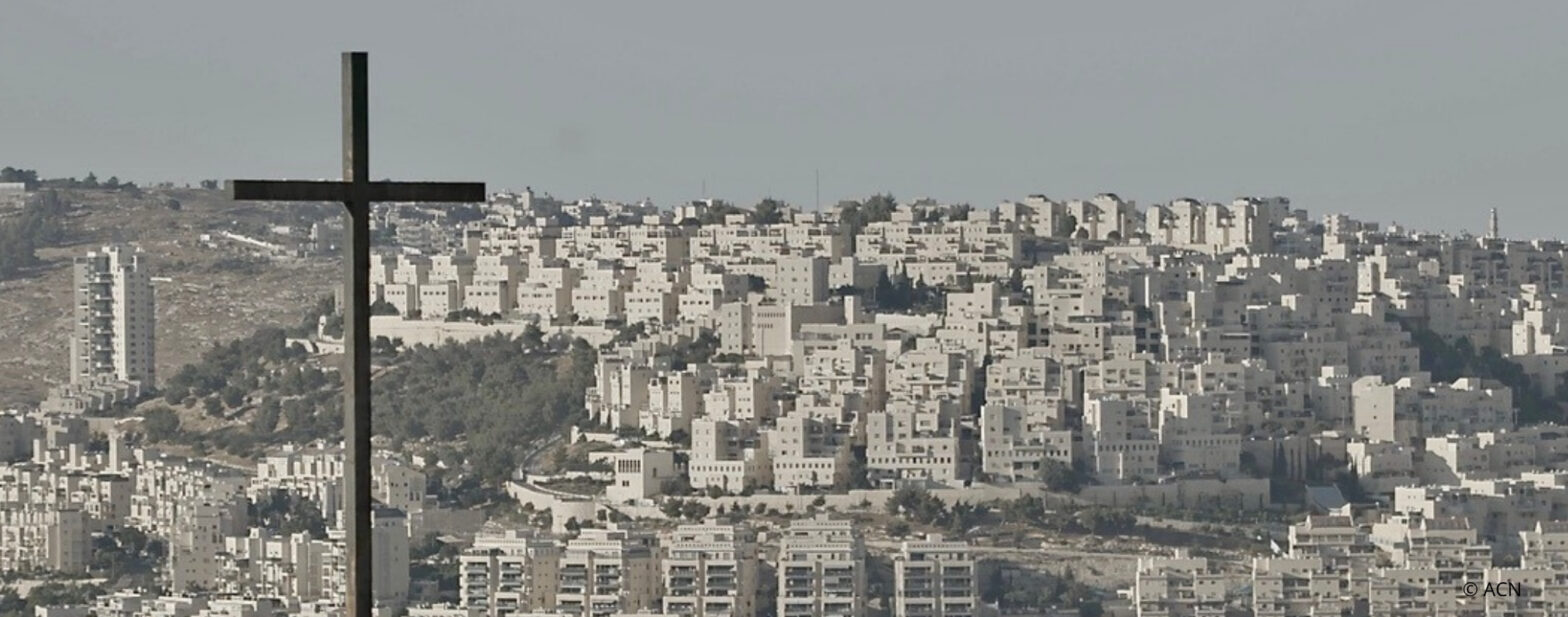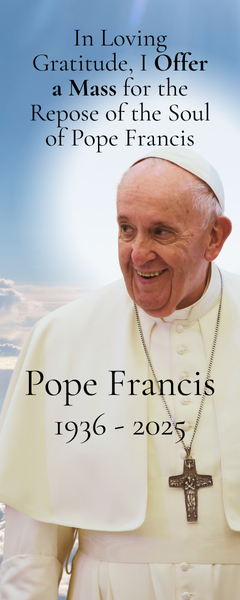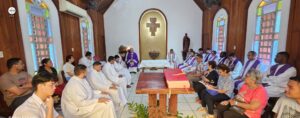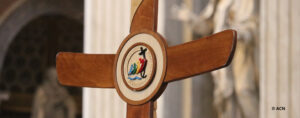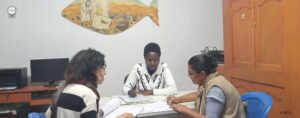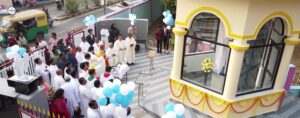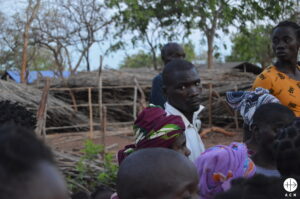Holy Land – Part 1 – Young Christians still reeling from October 7 attacks
During a recent trip to the Holy Land, an Aid to the Church in Need (ACN) delegation spoke to young people and those involved in youth ministry in different regions, and found that though the challenges differ, all of them face difficulties, with many turning to their faith for solace and hope.
One year after the terroris attack that unleashed the current war in Gaza, young Christians in the Holy Land are feeling lost and hopeless about life ever returning to normal.
“In our culture, we don’t leave our parents’ house before getting married, so people continue to live with their parents. I want to leave, but I can’t without getting married, and at 27, I can’t afford my own house, so I can’t afford to get married,” says Raffi Ghattas, a Christian journalist with the Youth of Jesus’ Homeland – Palestine (YJHP), the youth chaplaincy in Palestine, which provides pastoral support for Christians in Jerusalem and the West Bank and operates under the umbrella of the Latin Patriarchate of Jerusalem (LPJ).
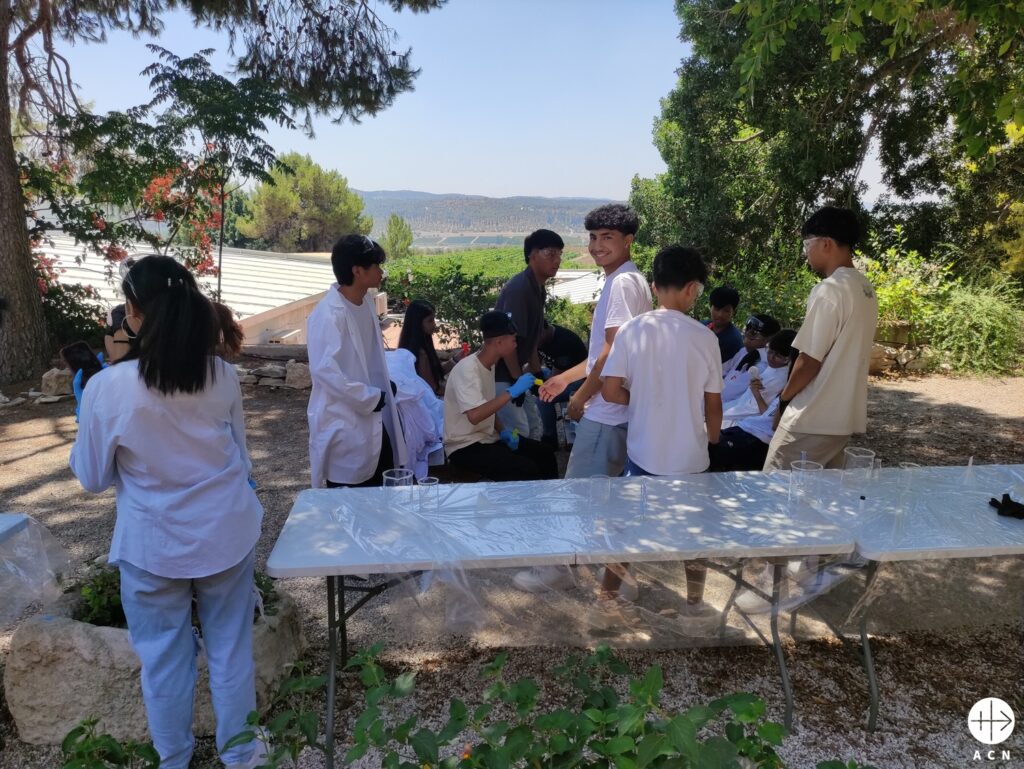
“With no hope, people try to leave, and many do not have children or marry,” says Dima Khoury, the director of Social Services at the LPJ. “It is very difficult to give them hope. The ones who do have children have just one or two. It takes a full salary of one of the spouses just to cover rent, so both have to have jobs,” she adds. And jobs, of course, have also been scarce since the latest war began, because many Christians worked in tourism—a sector that has become almost non-existent due to the conflict.
When asked, all the young Christians say they just want to return to life as it was before October 7. Raffi, however, points out that “before October, we lived in a routine. The first time I realized this was when I went on vacation to Turkey as a child, and asked the guide where the checkpoints were.
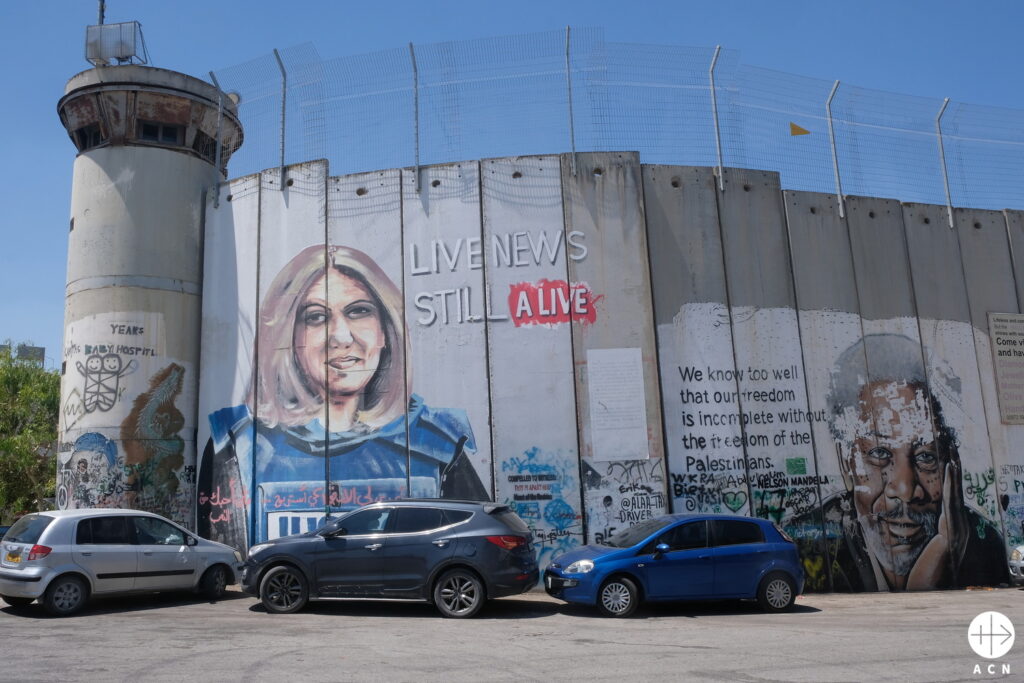
In Jerusalem, there was a checkpoint under our house. I lived ten minutes from my school, but I always had to stand at the checkpoint. One day, when I was eight years old, the soldier asked me to tell him my ID number in Hebrew. I couldn’t and I started to cry. They were teasing me, and he kept me in a corner for two hours until I learned it by heart. I only realized later that nobody should have to live like this. People say that until the war, everything was okay, but it wasn’t. We were just used to it,” he believes.
Many native Arabic-speaking Christians used to live in West Jerusalem, having been pushed into the East when Israel occupied the city. The result is that now the Christian families do not own their own houses or land and are dependent on skyrocketing real-estate prices.
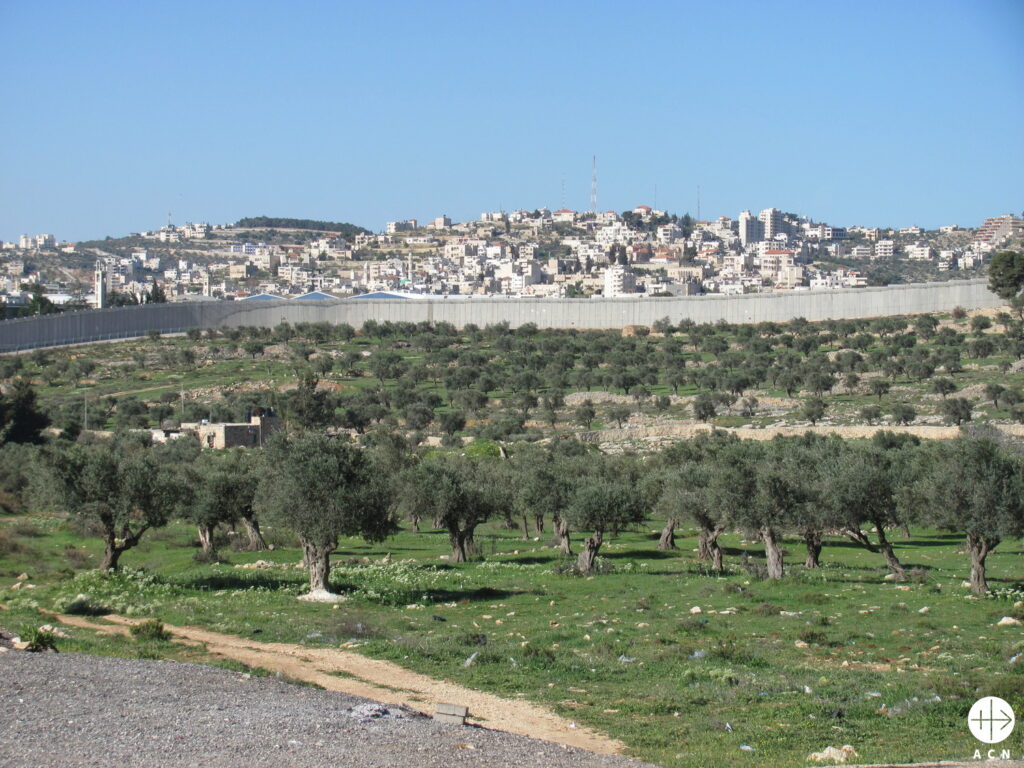
Bearing the Cross in the West Bank
Life in the West Bank comes with its own challenges. Before October 7, 180,000 Palestinians had permits that allowed them to go to work in Israel, but almost all of these were revoked after the attacks. To date, only 10,000 have been renewed, mostly for doctors, nurses, and some teachers primarily working in Jerusalem.
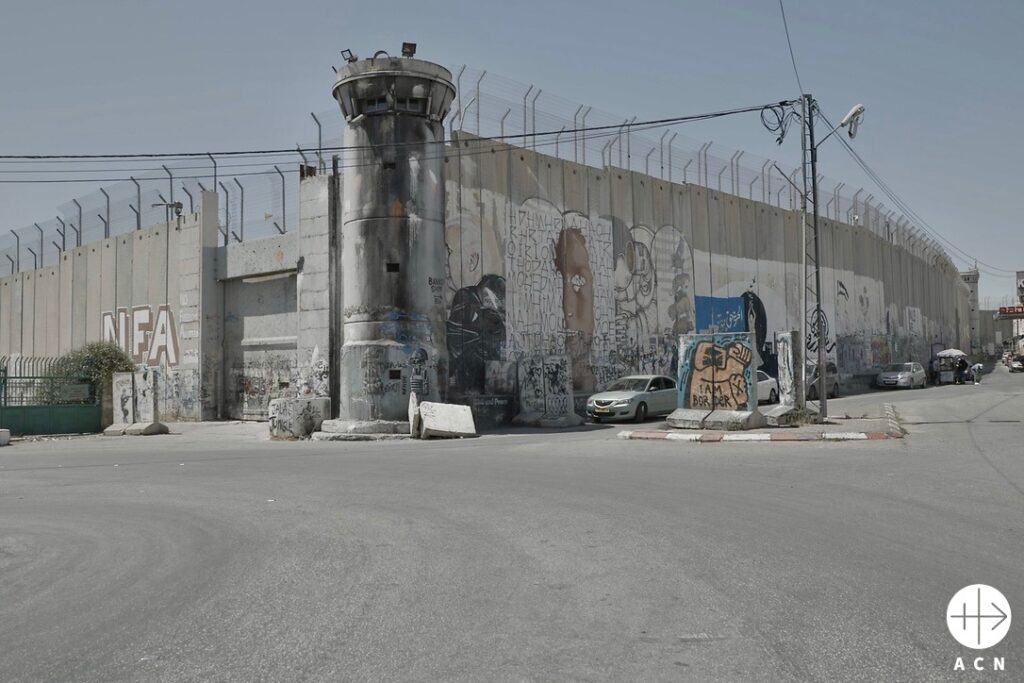
During a meeting with the YJHP group in Ain Arik, on the outskirts of Ramallah, Shaheen tells ACN that he used to earn around 120 dollars a day working as a blacksmith in Israel. Now, if he is lucky, he’ll earn one tenth of that working in the West Bank. Ghadeer, a young girl who works for the Palestinian Authority (PA), earns only half a salary every three months, because Israel has been withholding the customs and VAT funds it usually transfers to the PA.
The YJHP meeting takes place in an abandoned building where, with the help of ACN, the Church plans to build a new youth centre. The group is led by Fr. Louis, a charismatic young priest from Jordan who has breathed new life into the local youth ministry. “We had some difficulty in finding a suitable place to have summer camps, spiritual retreats, or Bible studies. This is a good, neutral, relaxed place, far from the city, and lies in the centre of the West Bank, which makes it accessible to all,” he tells ACN.
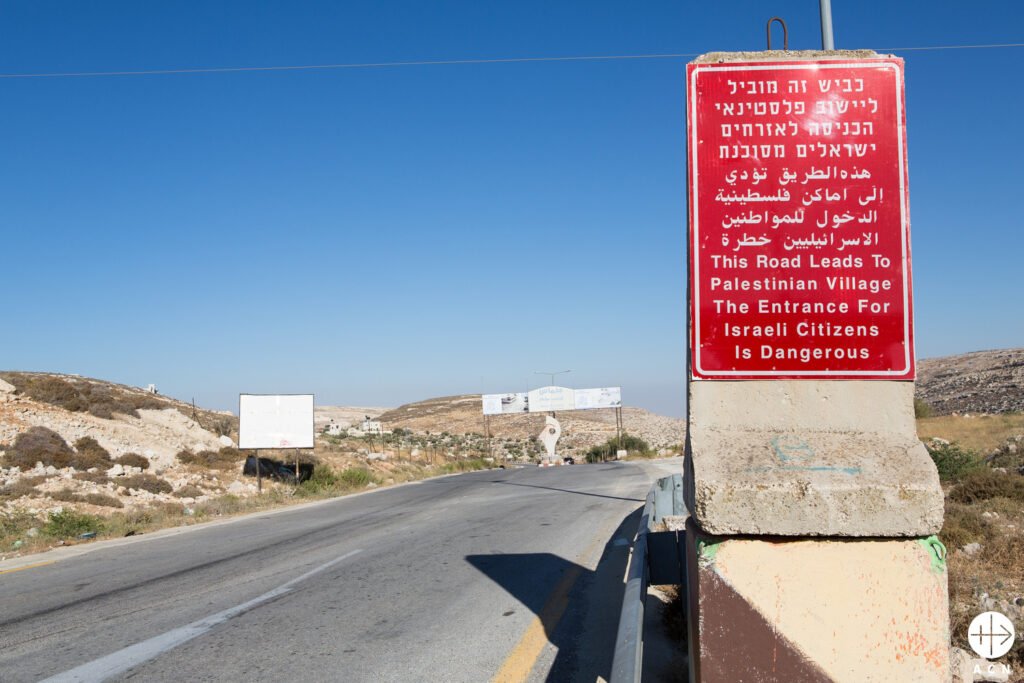
An important criterion for the location of the centre is the absence of Jewish settlements nearby. “Wherever there is a settlement, there is a checkpoint, and a conflict spot between settlers and Palestinians, which means the road can be closed. It would be difficult and dangerous for the young people,” Fr. Louis explains.
Amidst the difficulties, the members of the YJHP see it as their mission to maintain and strengthen the connection of the remaining Christians with their religion. “Our first priority in youth ministry is teaching the young people to belong to their land not because they are Palestinian, but because when God decided to become incarnate, He chose this land. This is a privilege, but it is also a cross. We are bearing this cross,” says Raffi.
“If the Christians leave,” adds Fr. Louis, “the holy places will be like cold and abandoned museums. We insist to the young people that they do not emigrate, because Jesus lived and died here.”
To read the second part, click on this link: https://acn-canada.org/young-christians-still-reeling-from-october-7-attacks-part-2/

